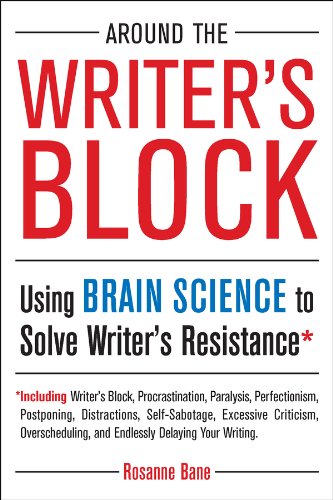You Can't Edit a Blank Page.
Sometimes I feel like there hasn't been a time I haven't been editing. In journalism school we edited and edited to get our news articles just so and once they were perfect on the page we printed them out and pasted up the paper. When I moved into TV news I learned that kind of editing was simple. In television they send you out in the big, wide world, tell you to shoot good pictures and get good interviews...and then come back and make the hour of footage you just shot into a story of a minute or less. And then I started writing my own stories and learned all that editing would stand me in good sted...because writing the perfect story the first time through is truly a myth. At least for me.But I've learned a few things along the way and editing isn't the heinous crime against creativity it once was.
First, don't tackle it all at once. There are layers to my editing. As I'm writing the first draft, I read through the previous chapter before starting fresh with a new chapter. During that pass I correct small misspellings or grammar issues. I don't allow more than that. Once the book is finished I allot time for 3 full passes: 1 to check on grammar issues, 1 to check continuity - is that character's name really Reginald? WTF was I thinking?!? - plot and flow issues (this sounds like a lot but I've found they work well together), and a final pass to see what I've overlooked. On that final pass I print out a copy in 14ish point type and some kind of color ink (lately I like blue). I find the bigger font and color change helps me catch little issues I haven't to that point.
Second, time is my friend. You know those editing layers? I don't tackle them on the first, second and third day after finishing the draft. I wait at least 2 weeks before starting any kind of editing. And I try to let at least a few days slip by before going from one draft phase to another. Those built-in waits help me 'forget' the story so each time it's like looking at it with fresh eyes.
Third, new projects are a great carrot. During those wait times, I'm not twiddling my thumbs. I'm reading - out of and in the genre I write. I'm writing - sometimes on a new book, sometimes researching a new book, sometimes just free-writing some really, truly, horribly bad poetry that will forever be locked under my bed. But I'm still working on the creative side of my brain.
The subject line up there comes from La Nora herself. She said something to that effect a few years ago and it's kind of caught on in writing circles. Because she is 100% right. You can't edit a story that hasn't been written. In some cases you can't tell a story that hasn't been edited.
Do you have an editing tip that you live by?
Kristina Knight's latest release, Moonlight Match, is available now!
Moonlight Match is part of the Resort to Romance continuity project ~ 10 sweet romances, all set during a week-long matchmaking event in the Bahamas!
Aster Harrington believes in love but love doesn’t seem to believe in her. She’s hoping Goldie and Ginny, the matchmakers who’ve matched on two generations of Harringtons, can work a little love magic for her…
Some call Ethan Talbot rigid, but he prefers to think of himself as prepared. Unfortunately, when he’s matched with Aster Harrington at Joy Island’s Matchmaking Week, all those carefully prepared plans go out the window. He can get back to finding a suitable wife once he’s home in New York. After all, how much damage can one week in the Bahamas do to his plans?
Kristina Knight is a contemporary romance author, part-time swim-kid wrangler, and full-time ThinMints enthusiast. You can find out more the book and Kristina on her website, and feel free to















